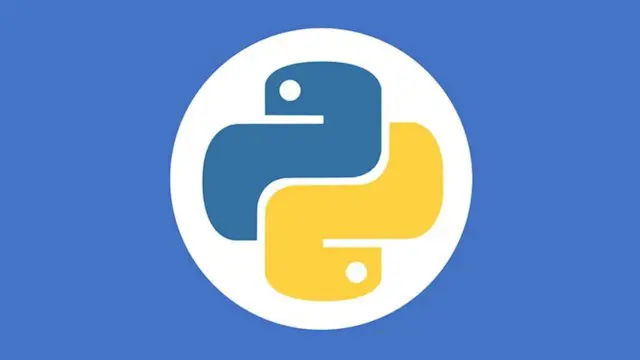
Python Programming for Beginners
Self-paced videos, Lifetime access, Study material, Certification prep, Technical support, Course Completion Certificate
Uplatz
Summary
- Certificate of completion - Free
- Reed courses certificate of completion - Free
Add to basket or enquire
Overview
Uplatz offers this comprehensive course on Python. It is a self-paced course with video tutorials. You will be awarded Course Completion Certificateat the end of the course.
Python is emerging as one of the most preferred languages in data science and data analysis as more and more data scientists choose open source scripting languages ??for machine learning and their working algorithms. in data science. The reason for this growing popularity over the years is due to Python's easy-to-code syntax and large number of built-in libraries and frameworks.
Python, a very simple programming language that has encouraged many programmers to pursue careers in Python outside of other languages.
Advanced Python methods
- Data collection
- Data processing and storage
- BONUS tips and methods!
If you're looking for a course that will take you from beginner to expert, go no further! With our courses, we can ensure that the knowledge you learn will help you in your career.
With Uplatz Python Programming (Advanced) Course you will learn-
- Learn many advanced Python methods and variables.
- Learn how to scan, process and store data.
- Learn how to create your own methods and functions.
- Take a huge step towards OOP, Object Orientated Programming.
Curriculum
Course media
Description
(A) Basics of Python
- Python Indentation
- Comments and Quotation
- Python Identifiers and Keywords
- Variables
- Reading data from user
- Working with input function
- Python data types
- Type conversion and eval
(B) Introduction to Data Structure
- String Data Structure
- List Data Structure
- Tuple Data Structure
- Set Data Structure
- Dictionary Data Structure
(C) Functions and Arguments
(D) Lambda Function
(E) Looping
(F) Advance Concepts in Data Structure
- List Comprehension
- Dictionary Comprehension
- Nested Data Structure
(G) File Handling
(H) OOPS Concept
(I) Modules
(J) Exception Handling
Who is this course for?
Everyone
Requirements
Passion and determination to achieve your goals!
Career path
- Python Developer
- Data Scientist- Python
Questions and answers
Currently there are no Q&As for this course. Be the first to ask a question.
Certificates
Certificate of completion
Digital certificate - Included
Course Completion Certificate by Uplatz
Reed courses certificate of completion
Digital certificate - Included
Will be downloadable when all lectures have been completed
Reviews
Currently there are no reviews for this course. Be the first to leave a review.
Legal information
This course is advertised on reed.co.uk by the Course Provider, whose terms and conditions apply. Purchases are made directly from the Course Provider, and as such, content and materials are supplied by the Course Provider directly. Reed is acting as agent and not reseller in relation to this course. Reed's only responsibility is to facilitate your payment for the course. It is your responsibility to review and agree to the Course Provider's terms and conditions and satisfy yourself as to the suitability of the course you intend to purchase. Reed will not have any responsibility for the content of the course and/or associated materials.


